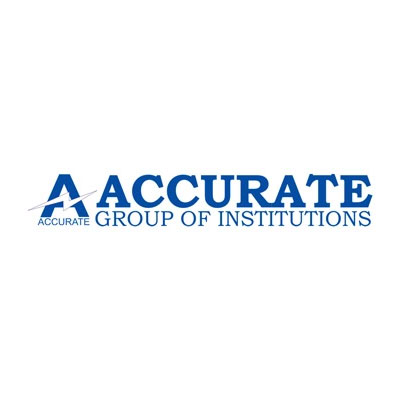In today's competitive business landscape, a Bachelor of Business Administration (BBA) degree serves as a crucial stepping stone for aspiring business leaders and managers. This undergraduate program provides the fundamental knowledge and skills necessary for both advanced business education like an MBA and long-term corporate success. With BBA admission open at leading institutes, now is the ideal time to explore how this program can launch your business career.
This comprehensive guide examines the key benefits of pursuing a BBA, how it prepares students for MBA programs, and why it creates a strong foundation for corporate leadership roles.
Core Business Fundamentals
A BBA program provides students with a comprehensive understanding of all business functional areas, creating a well-rounded foundation for future specialization. This broad exposure is invaluable for both MBA studies and corporate roles where understanding how different departments interconnect is crucial.
Key Business Areas Covered in BBA
- ✅ Marketing: Consumer behavior, brand management, and digital marketing strategies
- ✅ Finance: Financial accounting, corporate finance, and investment principles
- ✅ Human Resources: Talent management, organizational behavior, and HR development
- ✅ Operations: Supply chain management, logistics, and process optimization
- ✅ Strategy: Business policy, competitive analysis, and strategic planning

BBA as Preparation for MBA Studies
One of the most significant advantages of a BBA degree is how effectively it prepares students for the rigors of an MBA program. The foundational knowledge acquired during BBA studies gives graduates a distinct advantage in competitive MBA admissions and coursework.
How BBA Prepares for MBA
- Established business vocabulary and concepts
- Familiarity with case study methodology
- Understanding of quantitative business analysis
- Experience with business presentations and reports
- Exposure to group projects and team-based learning
MBA Advantage for BBA Graduates
- Stronger MBA application profiles
- Ability to focus on advanced rather than remedial topics
- Better performance in quantitative courses
- More meaningful contributions to class discussions
- Higher likelihood of specialization in preferred areas
Developing Essential Soft Skills
Beyond theoretical knowledge, a BBA program emphasizes the development of crucial soft skills that are invaluable in both MBA programs and corporate environments. These interpersonal and leadership abilities often differentiate successful managers and executives.
Key Soft Skills Cultivated in BBA Programs
- ✅ Leadership: Team management, motivation techniques, and decision-making
- ✅ Communication: Business writing, presentation skills, and professional etiquette
- ✅ Critical Thinking: Analytical reasoning, problem-solving, and strategic analysis
- ✅ Negotiation: Conflict resolution, persuasion techniques, and deal-making
- ✅ Time Management: Prioritization, project planning, and meeting deadlines
Why Pursue BBA in Delhi NCR?
The Delhi National Capital Region (NCR) has emerged as a premier educational and business hub, making it an ideal location for pursuing a BBA degree. With numerous multinational corporations, thriving startups, and business networks, the region offers exceptional exposure, internship opportunities, and industry connections.
Advantages of BBA in Delhi NCR
- ✅ Industry Access: Proximity to corporate headquarters and business centers
- ✅ Guest Lectures: Regular sessions by industry leaders and executives
- ✅ Internship Opportunities: Abundant options with leading companies
- ✅ Placement Advantage: Strong campus recruitment with attractive packages
- ✅ Networking: Opportunities to connect with business professionals and alumni

BBA vs Other Business Degrees
While there are several paths to business education, a BBA degree offers distinct advantages that make it particularly suitable for those planning to pursue an MBA and corporate careers.
Comparison with Other Degrees
- ✅ BBA vs BCom: BBA offers more management focus while BCom emphasizes accounting
- ✅ BBA vs BA Economics: BBA provides practical business skills while Economics is more theoretical
- ✅ BBA vs Direct MBA: BBA creates foundation for better MBA performance
- ✅ BBA vs Specialized Degrees: Provides broader business perspective before specialization
Career Pathways After BBA
A BBA degree opens diverse career opportunities across industries and functions, while also providing excellent preparation for advanced studies like MBA.
Immediate Career Options After BBA
- ✅ Management Trainee: Executive development programs in corporations
- ✅ Marketing Coordinator: Assistant roles in marketing and sales departments
- ✅ Financial Analyst: Junior positions in banking and financial services
- ✅ HR Associate: Entry-level roles in human resources management
- ✅ Business Development Executive: Growth-focused roles in various industries
Choosing the Right BBA Institute
Selecting the right institute is crucial for maximizing the benefits of a BBA program. Key factors to consider include faculty expertise, industry connections, infrastructure, placement record, and alumni network.

Top BBA Institutes in Delhi NCR
- Accurate Institute of Management & Technology
- Shaheed Sukhdev College of Business Studies
- Jesus and Mary College
- Amity University
- Delhi University
Why Choose Accurate Institute for BBA?
- Industry-aligned curriculum with practical focus
- Experienced faculty with academic and industry expertise
- Modern infrastructure and learning resources
- Excellent placement record with leading companies
- Strong industry connections and guest lecture series
Long-term Corporate Success
The foundation built through a BBA program continues to pay dividends throughout a corporate career. The comprehensive business understanding, combined with developed soft skills, creates professionals who can adapt to various roles and advance to leadership positions.
How BBA Supports Long-term Career Growth
- ✅ Versatility: Ability to work across different business functions
- ✅ Leadership Pipeline: Preparation for management and executive roles
- ✅ Strategic Perspective: Understanding of how business decisions interconnect
- ✅ Network Building: Connections with peers, faculty, and industry professionals
- ✅ Continuous Learning: Foundation for ongoing professional development



-1.jpg)



 (Phone).png)






